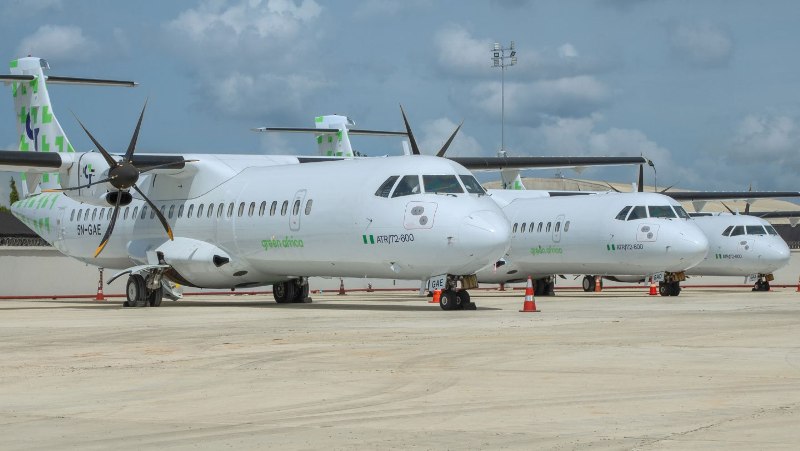Aviation Industry Is Highly Sensitive To Bad Weather, Climate Change, Says Kuku

The Managing Director/Chief Executive of Federal Airports Authority of Nigeria (FAAN), Mrs. Olubunmi Kuku says aviation industry is highly sensitive to bad weather and climate change.
Speaking during the Stakeholder Engagement on Carbon Emission Management which brought together stakeholders in aviation including airline operators, fuel suppliers, Bi-Courtney Aviation Service Limited (BASL), among others, Kuku who was represented by the Director of Special Duties, Mr. Henry Agbebire, said aviation business is at risk without stakeholders taking collaborative efforts on carbon emissions.
Kuku who is galvanizing airport stakeholders across the country to deepen collaboration towards reducing carbon emissions especially at the Murtala Muhammad International Airport (MMIA), Lagos said “this could be imagined through a scenario where the global airspace is not accessible by aircraft for few days due to bad weather.
“This comes with a lot of negative impacts, including economic and social. The aviation industry may be at risk of extinction if such situation persists for years. This invariably means that our business is at risk if we do not take collaborative efforts to ensure reduction and proper management of carbon emissions from our operations.
“The aviation industry contributes about 2% of the total global carbon dioxide emissions out of which airports contribute about 5%. The percentage contributed by airports is not a mere proportion if its potential negative impacts are critically examined.
“The Airports Council International (ACI) developed the Airport Carbon Accreditation (ACA) programme, which is a robust airport-specific carbon management certification program developed in line with ISO 14001 standards and the Greenhouse Gas (GHG) Protocol.
Its aims include helping airports all over the world to map, report, reduce and manage carbon emissions from their airport operations with the ultimate goal of net-zero emission. This target will significantly reduce the overall carbon footprint of the aviation industry, if all hands are on deck.
“The Federal Airports Authority of Nigeria (FAAN) has joined the league of airports all over the world that are making efforts to map, report, reduce and manage emissions from their operations through the ACA programme.
“The Murtala Muhammed International Airport (MMIA) was accredited and certified in 2020 by the ACI for correctly mapping and reporting sources of emissions from the airport, according to the principles of the GHG Protocol and the ACA programme.
It was noted from mapping of emission sources at the airport that more than 80% of the total emissions since 2020 is from electricity consumption!
As part of the intentional and dedicated efforts of the Federal Airports Authority of Nigeria to decarbonize our airport operations, a robust carbon management plan (CMP) was developed for MMIA. It is important to mention that measures included in our CMP are ambitious and capital intensive.
“Implementation of some of these measures earned the MMIA a full accreditation and certification for Reduction of carbon emissions from the airport by the ACI. The journey ahead of us is still far, as we aim to get higher levels of accreditation and certification in our decarbonization programme.
Fellow stakeholders, this engagement meeting is to underscore your importance as we prepare to compute our Scope 3 emission for MMIA in order to go to higher level of the ACA programme.
This means that relevant data will be required from you. Our ACA Team and the Carbon Emission Reduction Team will be following up with you after today’s event. We look forward to enjoying more support and collaboration from you as we join hands to decarbonize the Nigerian aviation industry.”
The guest speaker and CEO of Aviators Africa Tony Ukachukwu said Airport carbon emissions pose a significant challenge to the sustainability of the industry.
He stated that Nigeria’s air transport sector contributes approximately 1.4 per cent to the national GDP, adding over 20m transit through Nigerian airports globally and said the African region is not yet connected with air travel.
He stated that collaboration among stakeholders is essential for emission reduction, adding that benefits of collaboration include improved emission reduction outcomes, increased innovation, and enhanced reputation.
“The Federal Airports Authority of Nigeria (FAAN) stands at a critical crossroads of environmental economic development and as Africa’s largest economy and a stewardship.
“As Africa’s largest economy and a pivotal hub for West African aviation, Nigeria faces a unique challenge: balancing rapidly growing air transportation needs with sustainable environmental practices.
“The journey towards sustainable aviation begins with a single, unified step. Together, we can transform how we think about travel, technology, and our collective environmental responsibility.”
Representatives of the Nigerian Airspace Management Agency (NAMA), the Nigerian College of Aviation Technology (NCAT), among others said collaboration is imperative to reduce carbon emission in the aviation sector.
NAMA Managing Director, Engr. Umar Farouk represented by his technical adviser, Jibrin Haske stated that NAMA recognized the importance of balancing the growth of air transportation with the need to protect the environment.
“We remain fully committed to ensuring that our air navigation services not only guarantee safety and efficiency but also contribute significantly to the reduction of aviation emissions.
“To achieve this, NAMA has taken deliberate steps aligned with national and global standards and initiatives, particularly the International Civil Aviation Organization’s (ICAO) Carbon Offsetting and Reduction Scheme for International Aviation (CORSIA) as well as the NCAA’s Clean-2-Breath Nigeria Campaign.
Allow me to highlight some of these efforts:
“Since 2015, NAMA has progressively implemented Performance-Based Navigation (PBN) RNAV Approaches in all Nigerian airports. This system, leveraging satellite-based navigation, enables more precise and efficient flight paths, reducing fuel consumption and carbon emissions.
“In 2020, we successfully implemented RNAV 10 routes across our airspace to further optimize flight efficiency. Additionally, in December 2021, we introduced Free Route Airspace (FRA), allowing aircraft to select the most direct routes between defined entry and exit points. This innovation significantly minimizes fuel burn and emissions.”
The MD stated that the agency is committed to leveraging emerging technologies to further enhance efficiency and sustainability.
“Innovations such as artificial intelligence, digital tower systems and advanced surveillance technologies will play a key role in reducing environmental impact while maintaining the highest standards of safety and efficiency.
On his part, the Ag. Rector of the Nigerian College of Aviation Technology (NCAT) represented by Engr. Daniel Lawrence, Dean Aircraft Maintenance Engineering School said, “As we face the challenges of climate change, it is imperative that we adopt sustainable practices to ensure the long-term viability of the aviation industry and its minimal impact on the environment.
“The Nigerian College of Aviation Technology, Zaria, stands at the forefront of aviation training, and we understand the critical role we play in shaping the future of aviation professionals who will lead these essential efforts. We are fully committed to embracing and promoting environmentally responsible practices, particularly in the reduction of carbon emissions at airports. This includes supporting the adoption of green technologies, enhancing fuel efficiency, and fostering innovations that can reduce our environmental footprint.
“I commend the efforts of all stakeholders in the aviation industry for their dedication to making our airports more sustainable, and I encourage further collaboration towards achieving carbon neutrality in aviation. Together, we can contribute to a cleaner, greener world while ensuring safe, efficient air travel for generations to come.”






